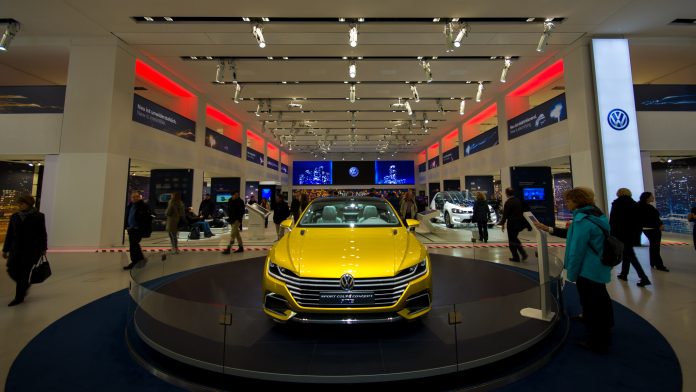The quality level and independence of vehicle type-approval and testing will be raised and checks of cars that are already on the EU market will be increased, according to a political agreement reached between the European Parliament, the Council and the European Commission on December 7. The aim is to strengthen the overall system with European oversight.
The EU co-legislators approved the Commission proposal from January 2016 to fully overhaul the EU “type-approval” framework: the rules for certifying that a vehicle meets all requirements to be placed on the market and for rigorous checking of manufacturers’ ongoing compliance with EU law.
“With tighter rules which are policed more strictly, the car industry has the chance to regain consumers’ trust,” said Jyrki Katainen, Vice-President for Jobs, Growth, Investment and Competitiveness. “Just a few weeks after the Commission’s clean mobility proposals, today’s agreement marks yet another milestone in the EU’s wider efforts to reinforce our car industry’s global leadership in clean and safe vehicles.”
According to Commissioner Elżbieta Bieńkowska, responsible for Internal Market, Industry, Entrepreneurship and SMEs, the so-called Dieselgate scandal revealed the weaknesses of our regulatory and market surveillance system.
“We know that some car manufacturers were cheating and many others were exploiting loopholes,” she said. “To put an end to this, we are overhauling the whole system. After almost two years of negotiations, I welcome that the key elements of our proposal have been upheld, including real EU oversight and enforcement powers. In the future, the Commission will be able to carry out checks on cars, trigger EU-wide recalls, and impose fines of up to €30,000 per car when the law is broken.”
The main building blocks of the new rules include measures to raise the quality level and independence of type-approval and testing before a car is placed on the market. The technical services will also be regularly and independently audited, on the basis of stringent performance criteria, to obtain and maintain their designation by a member state for testing and inspecting new car models. The Commission and other member states will be able to challenge a designation when something is wrong.
National type-approval authorities will also be subject to Commission audits to ensure that the relevant rules are implemented and enforced rigorously across the EU.
The Commission’s proposal to modify the remuneration system to avoid that technical services will be paid directly by the manufacturer was not maintained.
As for the increased checks of cars that are already on the EU market, EU members will have to carry out regular spot-checks on vehicles already on their market and such results will be made publicly available.
All member states will now be able to immediately take safeguard measures against non-compliant vehicles on their territory without having to wait for the authority that issued the type-approval to take action, as is currently still the case.
What is more, the Commission will carry out market checks independently from member states and will have the possibility to initiate EU-wide recalls. It will have the power to challenge the designation of technical services, and to impose administrative penalties on manufacturers or technical services of up to €30,000 per non-compliant car.
The preliminary political agreement reached by the European Parliament, Council and Commission in so-called trilogue negotiations is now subject to formal approval by the European Parliament and Council. The Regulation will then be directly applicable in all member states and will become mandatory on 1 September 2020.
The new rules were welcomed by the Progressive Alliance of Socialists and Democrats (S&D) Group in the European Parliament. Christel Schaldemose, MEP and S&D negotiator on type-approval, said: “After difficult negotiations and the member states initial resistance to accept our more ambitious proposals, we did in the end reach a good deal to prevent emissions cheating in the future”.
“Drawing on the lessons of the Dieselgate scandal, we pushed for and obtained strong EU oversight in both type-approval of new cars and market surveillance. We insisted on the involvement of the Commission in the periodic audits of authorities granting type approvals to ensure that the new rules are applied in a fair, strict and uniform manner.”
Nicola Danti, MEP and S&D spokesperson on internal market and consumer protection, added: “Today’s deal on new rules on type-approval for cars and market surveillance is good news for consumers and the environment… As Socialists and Democrats we won’t accept another Dieselgate and we will continue to fight for the approval and implementation of the new rules agreed today in the interests of our citizens.”
In a similar vein, the European Conservatives and Reformists Group (ECR) MEP Dan Dalton said “This is the final step in fixing a broken system which let down millions of people around Europe.”
“It has not been easy to secure agreement but I am delighted that we managed to include in the final text almost all the recommendations made by Parliament’s committee of inquiry into the emissions scandal,” he added. “Make no mistake, in future any manufacturers trying to cheat the system will be found out and properly punished.”

